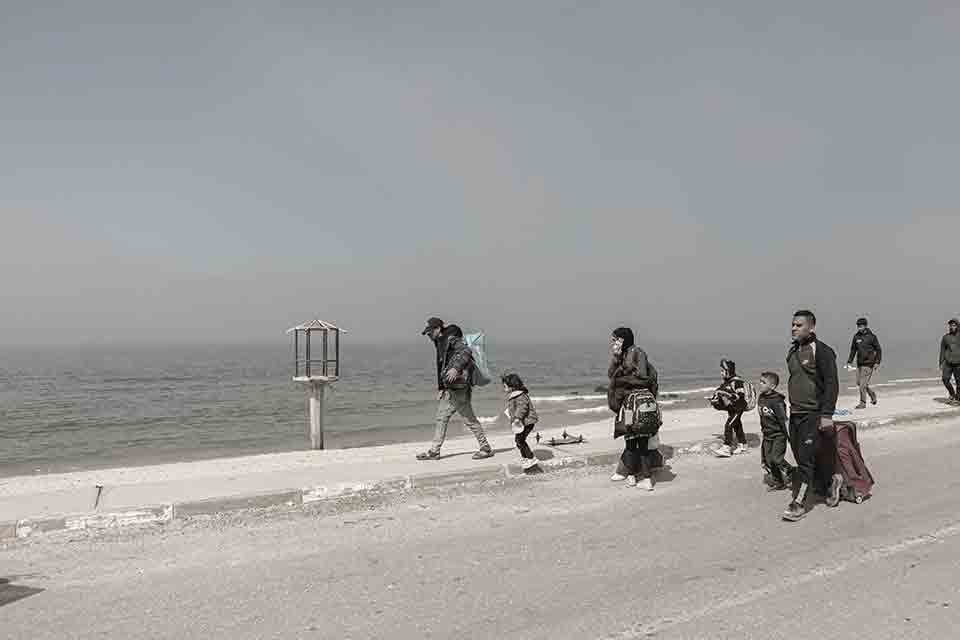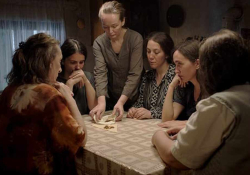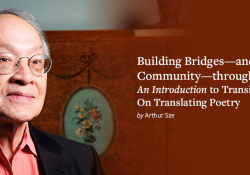I Bought My Shoes Twice Over

A writer and his family become part of the modern saga of displacement and find themselves among a menagerie of companions.
As we left the house, our panting was so loud, it sounded like the hissing of a red-eyed dragon. The bus driver was short with us, so we moved as fast as we could and didn’t take everything we needed. We left behind our summer clothes and especially our dress shoes. My mother left the clothes she kept in her brown wardrobe—the one with the engravings that look like pharaonic hieroglyphics—her thobes with the red and blue silk embroidery, and her copper kohl jar.
We thought at the time that we’d only be gone for a couple of days, until the rockets stopped falling and the bombs and drones had quieted down. But once the bus pulled away, it began to dawn on us that we might never come back. My family and I had become part of the modern saga of displacement. We were on our way from a house that provided everything we needed to live a comfortable life to a tent patched together from cloth, plastic, and a few slabs of wood.
My family and I had become part of the modern saga of displacement.
The days drag by when you’re displaced. You find yourself crying for no reason out of sheer frustration and rage over the misery of living in a tent. But you’re forced to say goodbye to the life you lived before displacement, put it in a cardboard box, and pitch it along with the cardboard boxes that are ready to be tossed as kindling into the wood fire.
Since the days are so tedious, you start taking special note of things around you. At first, you count the tents nearby. Then you start counting how many people live in a single tent. After a while, you get tired of counting things, so you take to reflecting on the stars and planets. You make out Ursa Major and Ursa Minor, and you think in amazement about the way people in olden times would use the constellations to guide them in this direction or that. But eventually you get bored with the stars and the planets and the color of the sky.
Then you notice the other creatures that have been sharing your space with you in your displacement camp, such as a couple of crows that own the place and fight off other crows to keep them from trespassing on their territory. To your surprise, you learn that this crow couple eats what’s left of the cans of beans, peas, and Egyptian rice as well as what’s left of the tuna, and that they can even open tins of food with their beaks.
One time a woman in one of the tents started screaming because she’d been stung by a centipede. The centipede is a beautiful, elongated creature reminiscent of a baby snake, with lots of well-coordinated legs and a streamlined black body that’s smooth to the touch. But you have to kill it.
As the days go by, you realize you’re living in a centipede kingdom and that some of your nicest companions are a pair of brown doves. They’re a lovely color, but the cooing of the female resembles a wail of grief. It sounds like the words, “Ya khaybati, ya khaybati!—Woe is me! Woe is me!” As a matter of fact, her cooing expresses the heaviness of the distress we’re all living through here.
The doves are a lovely color, but the cooing of the female resembles a wail of grief.
A third companion is a gigantic black dung beetle. When it comes into the tent, you stand there stone-still and scared to death as the children tremble with fright. But if you happen to be “the man of the tent,” you have to pick it up as carefully as you can and take it outside.
But the most odious “companion” of all is the morning flies. We can’t get any sleep at night for fear of being bombed, and we wait for morning to come so that we can sleep. But when morning comes, you can’t sleep then, either, since the flies come and attack you from all directions.
The last companion I’ll mention is inanimate. It doesn’t walk or talk. It doesn’t eat or sleep, and it doesn’t reproduce. It’s the coarse yellow sand that you find between your toes night and day. You find it in your ears and in your front and back pockets. It settles in your shoes and shares your bed. You also find it in kitchen utensils, such as glasses and cooking pots. When we were first displaced, we would try to get rid of it, but as time went by, it started to grow on us in a strange sort of way, like a friend that’s always there. You accept it and even start to feel you can’t do without it.
The idea of companions in life—in displacement, I mean—is something new to us. But we’re getting used to it.
The clothes and shoes we managed to bring with us on the night we fled from our house have started wearing out, especially the shoes, and it’s been hard to go back home to get other things. After we left, we heard the whole house had been blown up and that there was nothing left but a pile of dust. The thing I fear most from this war is that my mother will ask me to go home and bring her thobes and her copper kohl jar. If she does, what will I say to her??
So, I go to the market to buy some shoes. When I get there and start looking over the merchandise, I find that they’re selling electrical appliances, glasses, and other kitchen utensils that look familiar. In wartime, bombed-out and abandoned houses turn into scrap to be resold, and our own house is sure to have seen its share of looting.
In any case, as I’m looking through the things for sale, I’m suddenly struck by a thunderbolt. I stand there motionless. I see a pair of Italian-made patent-leather shoes I once bought for a huge chunk of money to wear to my little sister’s wedding.
I always loved those shoes, because they made me look like Al Pacino. I pick them up and say to the vendor, “These are my shoes. Where did you get . . . ?”
But before I can get the words out of my mouth, he’s holding a knife to my face.
“I bought them from some guy, and now I’m going to sell them for a profit,” he growls. “Whoever stole them from your house isn’t around.”
I stand there for a moment thinking to myself: I’ve got to get them back no matter how much I have to pay. And sure enough, I buy them. I buy those shoes of mine for the second time and take them back to our tent. In wartime, of course, there’s no place for happy occasions. “Happy occasions” in wartime are things like not getting bombed, or surviving a bombing, or having a bullet whizz past your head without hitting you, or getting hold of a kilo of sugar and throwing a tea party with your family in your tent with a pair of shiny black shoes on your feet.
I’m the one who bought his shoes twice over!
Translation from the Arabic











